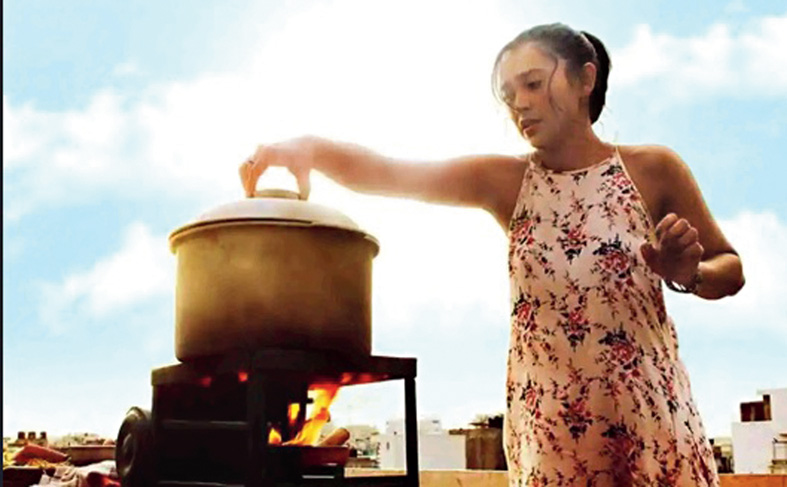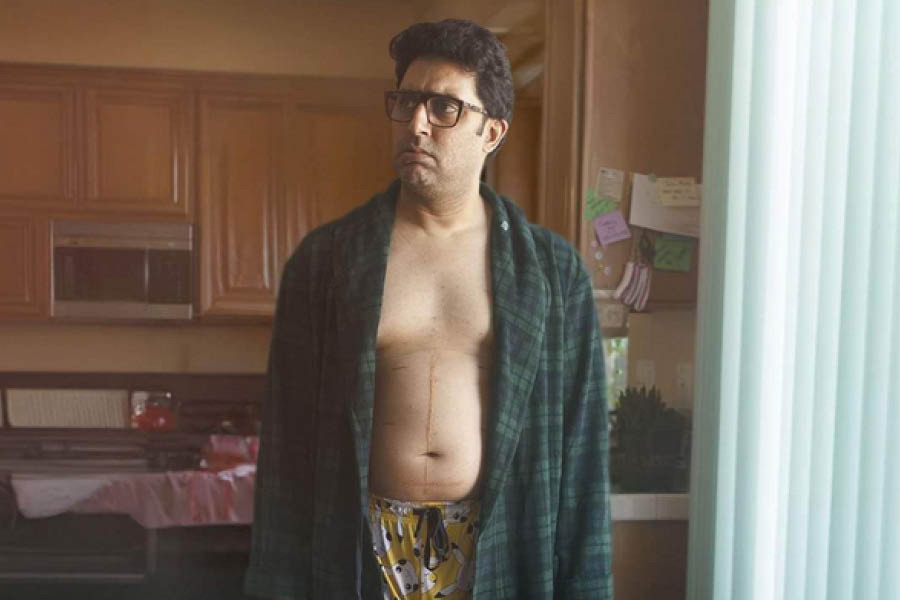There is a scene in Axone where a group of friends, all collectively branded as hailing from the ‘North-east’, are sitting in a room, talking over the phone to their respective friends and families. A bunch of words, all on the same subject but distinctively spoken in different languages (Khasi to Naga, Manipuri to Arunachali) fly about. On the surface, it’s a simple scene of a group of friends desperately trying to work out the solution to a common problem, but it succinctly brings out the diversity even in that small room — all the people hailing from that part of the country can’t be conveniently reduced to ‘North-easterners’ (or the far more derogatory term, better left unsaid, that’s often used to describe them), just as all those from the southern part of the country aren’t ‘Madrasis’.
Axone, streaming on Netflix, describes itself as a ‘food comedy’. Which it largely is, focused as it is on a bunch of friends hailing from the North-east pulling out all the stops, in a comedy of errors, to cook a native dish for a special evening, the wedding of one among them. It’s a tall task because they live in a congested Delhi locality and the dish — Akhuni, a fermented soya bean staple that forms an indelible part of the food history of the region and which the film derives its name from — is pungent enough to challenge even the most immune nasal system.
Axone shows this ragtag group of youngsters — called out for their appearance and accent, customs and cuisine — desperately trying to fit into the melting pot of cultures and languages that defines the national capital, but often stirs the pot during its 100-minute running time, effectively touching upon fault lines as prickly as racism, prejudice and discrimination. But director Nicholas Kharkongor isn’t myopic to just focus on the ‘othering’ of these citizens in a country that they are an integral part of. Somewhere towards the end, a harangued ‘North-easterner’ lashes out at a well-meaning Delhi friend as ‘You f***ing Indian’. As someone born in that part of the country and having lived there for the first 18 years of my life, I am well aware of both sides of the story.
The best bit about Axone is that, even as it addresses issues that can potentially make one uncomfortable (yes, we are all complicit, whether we realise it or not), it does all of it with a lightness of touch, most of which bring on the chuckles. The film is set over a stressful day in the lives of these friends as they go about rustling up the delicacy — the narrative opens like a thriller of sorts, outlining their hush-hush ‘mission’ to secure smoked pork, the dish’s chief ingredient — navigating through the world of ‘nosy’ neighbours, a cylinder that runs out of gas and the simmering-under differences between themselves that quickly boil over.
The drama is primarily driven by best buddies and flatmates Upasana (Sayani Gupta, does well with her Nepali accent) and Chanbi (Lin Laishram, strong screen presence) who have to get the Akhuni on the dining table before their pal and bride-to-be Miram comes home. What unfolds is a race-against-time narrative, where they have to dodge an uncooperative landlady (Dolly Ahluwalia), often with the help of the latter’s grandson Shiv (Rohan Joshi is a riot).
Whether the Akhuni gets prepared on time or not, however, ceases to be important in the larger scheme of the story, as prejudice and preconceived notions are brought to the fore — from the idea that ‘these women are easy’ to a character being nonchalantly asked by a neighbour, ‘Tumko apni chhoti aankhon se poora deewar dikhta hain?’ At one point, a man casually says, ‘Tum log toh sab ek hi tarah ke dikhte ho’. Kharkongor, however, doesn’t make his film didactic or bears it down with social commentary. The laughs come in pretty often, and what’s very important is that he shows the ‘othering’ that the ‘others’ themselves propagate — Upasana, a Nepali, is told more than once by her friends how she’s not really qualified to cook a dish that doesn’t ‘belong’ to her.
Axone meanders in parts, but is well-meaning, authentic and impactful. We are all guilty of prejudice. The stench is far more within us. It’s time we all acknowledged it.











